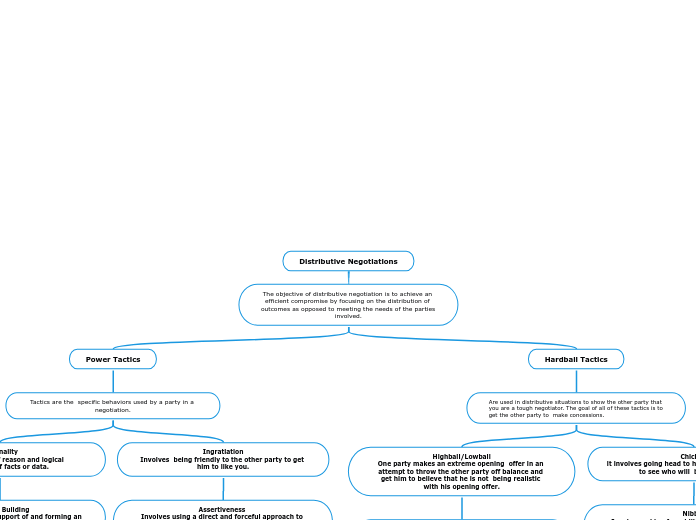по Luis Zamora 5 лет назад
472
Distributive Negotiations

по Luis Zamora 5 лет назад
472

Больше похоже на это
Chicken it involves going head to head with the other party to see who will back down first.
Nibble Involves asking for additional small things after negotiation has begun or even reached tentative agreement on the main issues.
Good Cop/Bad Cop It begins with one officer taking the role of the hardnosed, “bad cop” who is very tough on the suspect, The other officer follows in the role of the “good cop” who in contrast appears reasonable so that the suspect wants to cooperate with him.
Highball/Lowball One party makes an extreme opening offer in an attempt to throw the other party off balance and get him to believe that he is not being realistic with his opening offer.
Intimidation May involve name-dropping to imply a closer relationship with those in power or settlement
Blizzard It involves providing the other party with so much information that he is left feeling distracted
Ingratiation Involves being friendly to the other party to get him to like you.
Assertiveness Involves using a direct and forceful approach to push your own agenda and/or attack the other party’s position.
Imposing sanctions Involves the use of coercive power to achieve the desired results.
Rationality Involves the use of reason and logical presentation of facts or data.
Coalition Building Involves obtaining the support of and forming an alliance with others.
Upward appeal Involves obtaining support for your position from people in higher positions of authority.